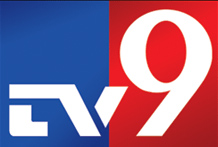Speech by CH.Ramaiah about NCAR2010
Thank you for your invitation to speak in this forum. At the outset, would like to humbly state that I am neither a computer literate nor a social scientist. I come here as a mathematics teacher . And as some one who came from social and progressive movements in this country. And someone who believes that that the science and technology has a strong role to play in the progress and development of a nation, especially in the 21st century. And as some one who is deeply interested in public education – and as some one who has seen the power of public education and how it has transformed for better and brought miracles into the lives of millions of people in our nation. But at the same time, even to date, public education is out of reach of many more millions of citizens Unfortunately, today the quality of public education offered is only going from bad to worse over time. And it is under severe attack from corporatization and privatization of education from various directions, making education inaccessible for millions of aspiring kids in our society.
So, when I think about computers, software and education – I am amazed at the developments in the electronics, computers , communication and internet technologies of the last fifty years and the impact they have had on every aspect of not only scientific domain, but also on more or less every aspect of our modern lives. And how they have changed immensely how we interact as a society. And how wide spread the impact has been across the globe, directly and indirectly. Maybe, I am not far away from the truth if I can dare to say that they are the most important scientific advancement of this century.
So the natural question that follows Is – as people interested in the larger good of the society, we have to worry about the questions like: Who owns these technologies? And who should own them ideally? And for whose and what development of the society this scientific and technological knowledge? And for some one like me, who believes in and aspires for a democratic and egalitarian society, how do I think about these questions.
I am trying to understand the Free and Open Software movement, from this broader perspective. And try to frame in the larger question, ideally how would science and technology relate to the larger society ? And what role, as responsible scientists, educators and citizens we should play in driving and directing the technology?
For the broader usefulness of any great technology to a diverse society like ours and many others around the globe, I think these should be necessary elements in it’s design:
-
Universal Accessibility
-
Easy Affordability
-
Decentralization, Diversity and Flexiblity
-
Openness and Transparency
-
Democratization and Accountability
These issues are much more important and relevant for a developing country and unequal society like ours. This is where the simple but powerful goals of the Free Software Foundation are inspirational.
As I understand, Free Software Foundation guarantees four fundamental freedoms for their users.
-
Freedom to run the software as the user likes it.
-
Freedom to have access all it’s components of the software and modify the software.
-
Freedom to distribute.
-
Freedom to publish it to the larger community.
And thus, let the user have full control on the software on his system . Isn’t this wonderful goal of any true learning? - Where the user is value and respected for what he is using and developed. And the user is considered as a responsible citizen. And as a collaborator in the advancement of the technology rather than a mere consumer.
If you think about these attributes are attributes of any perfect scientific knowledge base. As a mathematics teacher, when I teach a mathematics lesson in a classroom these are the very attributes I am teaching when I am engaged in a mathematical dialogue with the students. That is that the student uses whatever he learns, wherever he likes, to whomever he wishes to and he shares, contributes and propagates whatever he learnt back to the larger community. If we think about it, can we imagine the developments that have ever become possible in and the great discoveries due to applied mathematics, if any of the mathematical discoveries and tools were considered to be private property and proprietary of the contributors or the institutions they have worked in; Or if any one who ever used mathematical tools were only given incomplete information, or only the right to use them but not contribute. Or would have ever become possible without the contributions, collaboration and cooperation of thousands of big and small mathematicians from around the globe. I think what I said holds for a and no different in many other science and technology fields.
As an educator, I see a social mission for the schools – to teach the students to be competent, independent and cooperating with others. One important element of Free Software foundation is that if you use their software for living, you have to also contribute to it. This and other goals of the free software will inspire and teach students to be responsible, explain their role in the society, not dictated d by private and corporate interests. It teaches them good citizenship, not being a passive consumer. This is very valuable lesson.
Coming back to the question of if free software movement fulfills it’s role of being a good technology - in a developing country like ours – by making it easily affordable - independent of their geographical, economic and cultural situation - , and in being universally and equally accessible for any user in it’s completeness and across the globe, by using open and common standards – it is directly contributing to reducing the technological disparity between haves and have-nots . This is of immense advantage in a country like ours, where there are scarce economical and technological resources.
The value that free software model guarantees the users the freedom to innovate localization to local cultures and languages cannot be underestimated. And not only allowing, it encouraging the users to think of adapting the software to their conditions. And offering to collaborate and cooperate in developing newer tools. Isn’t this more welcoming model, where the local and diverse cultural and linguistic cultures around the globe are preserved than one which restricts that to use the software, you learn to communicate only in the languages and idioms of the economically developed countries. This is how this technology model leads to true democratization and inclusion of several cultures into the global oneness. Isn’t this globalization that has to be welcomed, as opposed to the top-down globalization models imposed us on today on a regular basis?
If we go explore further, the potential of it – like they have been doing several experiment s in our own country and elsewhere – with the help of these technological tools, it facilitates transparency, accountability and true exchange of information and real dialogue with their governments. And makes it affordable for the poor around the globe, to develop and use information technology tools – like for education, public education, public health.
For a layman like me, Information technology is made of two words – information and technology. And openness and transparency are of immense importance on both grounds. In an era, where the governments and private organizations gather on a broad scale, own and hold privy to the information - demanding open data and open technology and standards is of immense importance. I would further expand on the debate, by bringing your attention to the problems of privatisation of government information, suppression of patents, ownership of genetic information – which are deeper problems associated with intellectual property rights. In this regard, I would like to the troubling questions in our country surrounding the patenting by big companies of ancestral knowledge by the tribals, or the issue of restricting the rights of farmers to sell hybrid seeds by big agricultural multinationals, or the conduct of clinical trials without proper consent and accountability.
TO DOWNLOAD THE SPEECH OF CH.RAMAIAH IN .PDF FORMAT CLECK HERE
TO DOWNLOAD THE SPEECH OF CH.RAMAIAH IN .ODT FORMAT CLICK HERE







